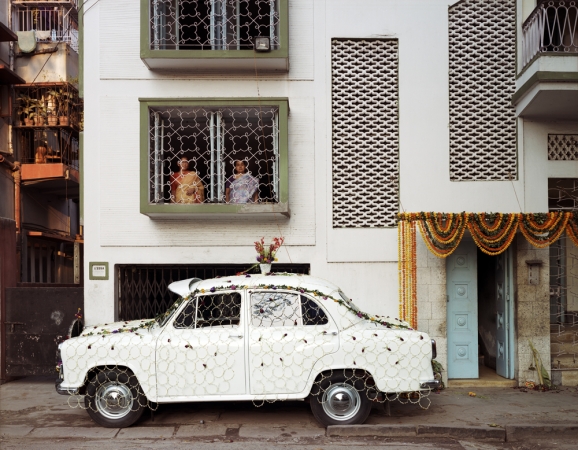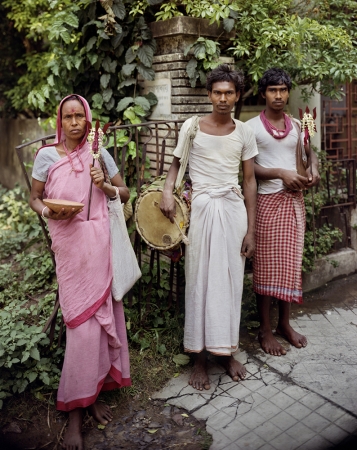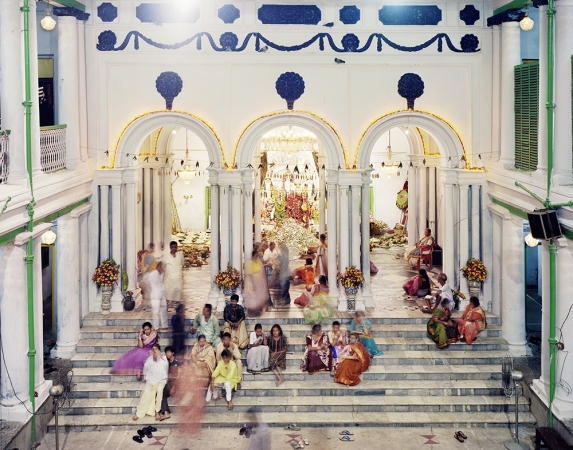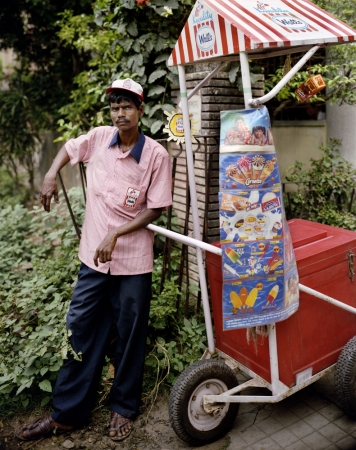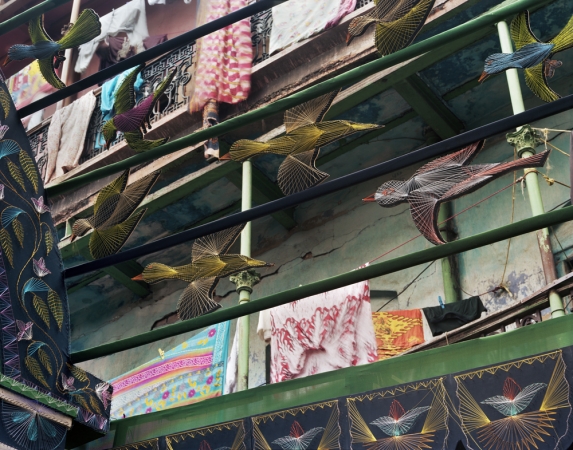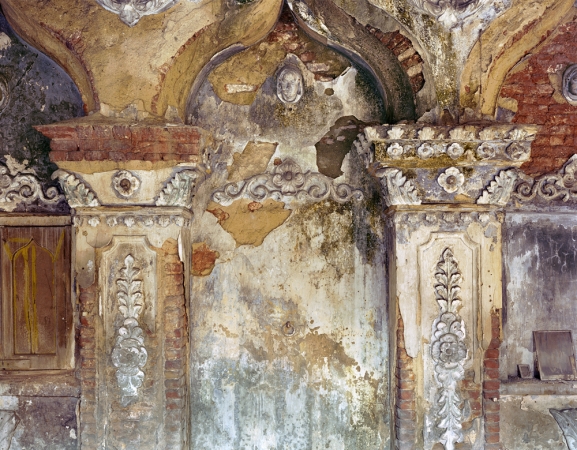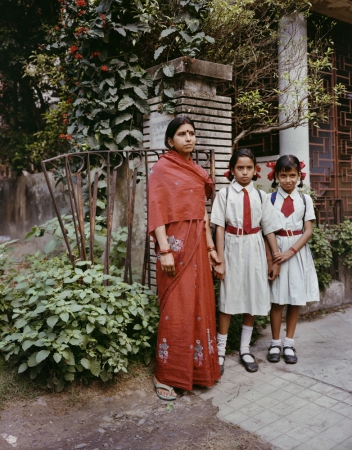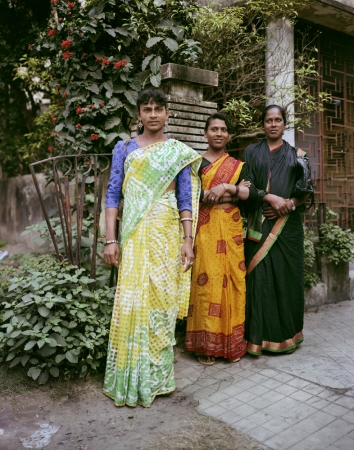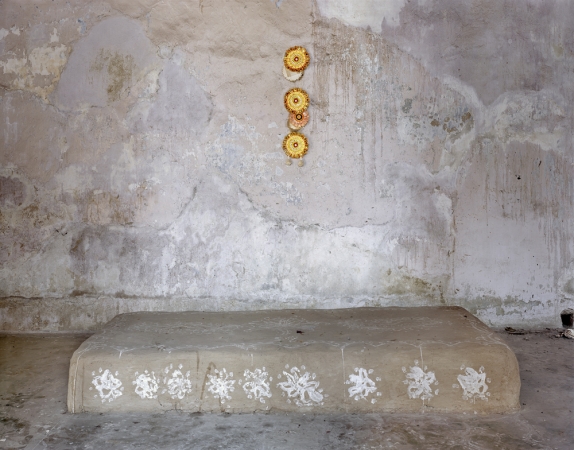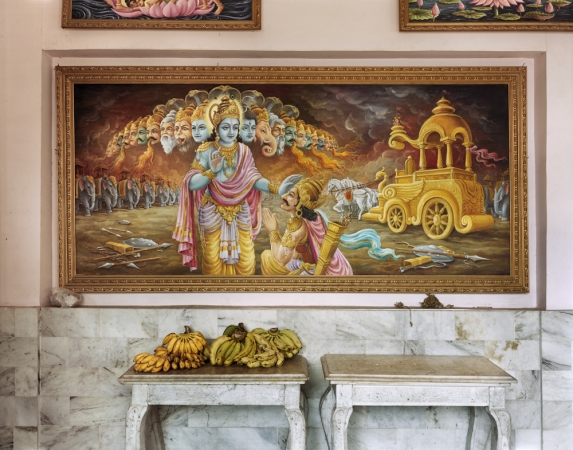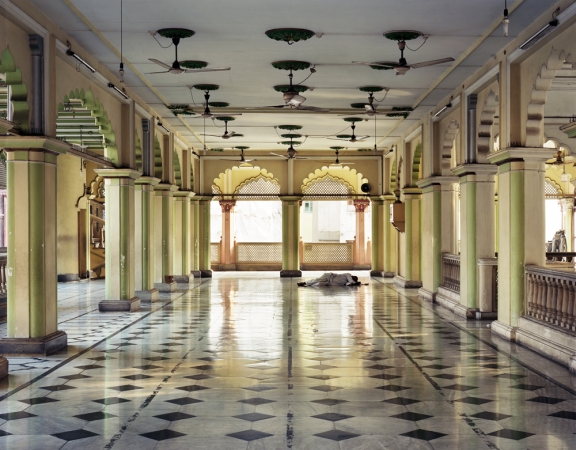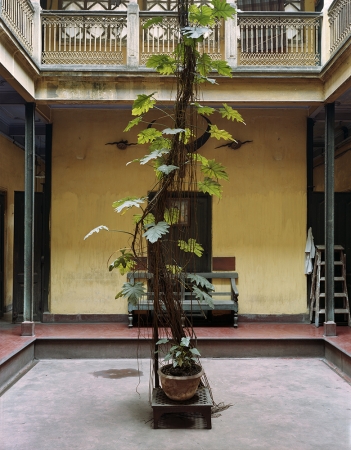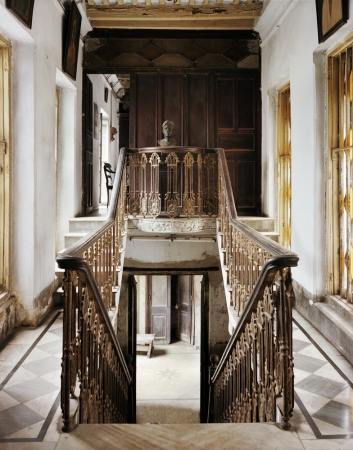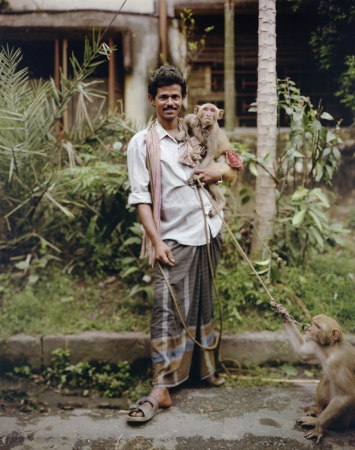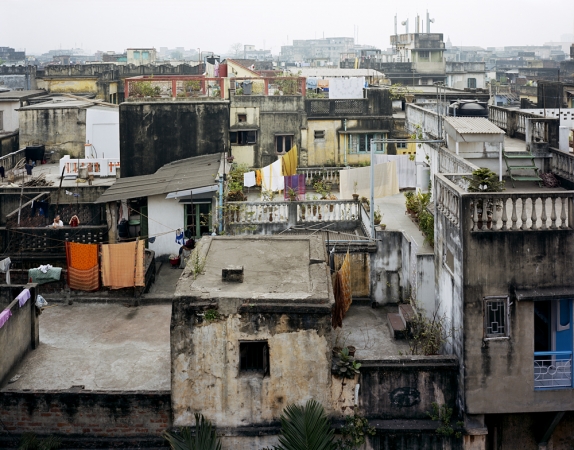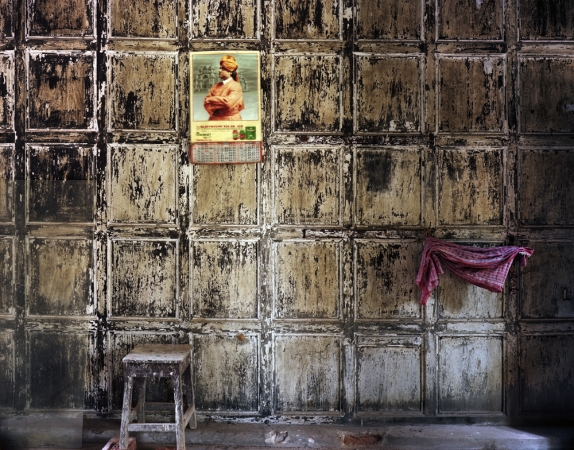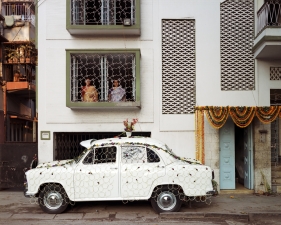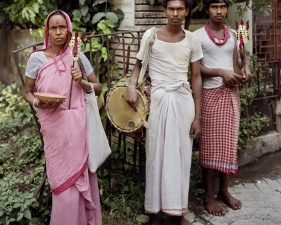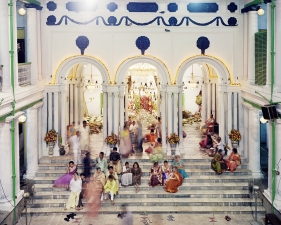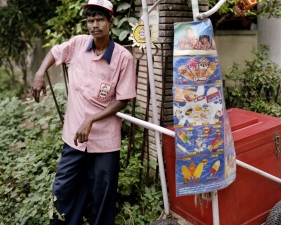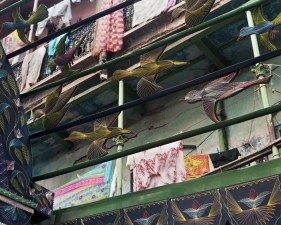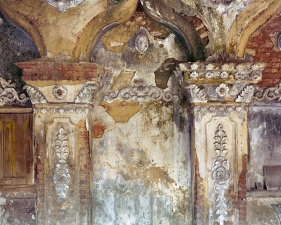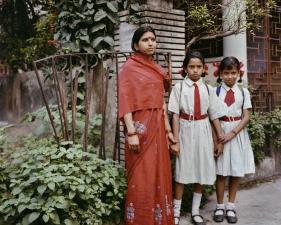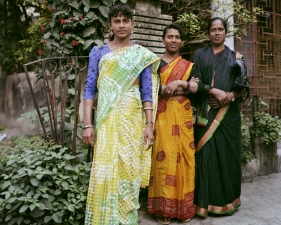The Home and the World, a View of Calcutta
McPhee’s images are less an overview of this city of 15 million than glimpses into its complex, often conflicted soul. The photographs gauge both the history of personal spaces and impart a sense of intimacy and calm that often belies the maelstrom that can be found in the external world. This tension permeates the show: in the war of attrition between nature and the built environment, vines shroud statues and columns, stones sieve rusty earth, clouds are saturated with smoke and exhaust. There is the eclectic mix of culture and class: Hindu, Muslim, Christian, Jewish; Asian and European; palace and tenement; antique and modern, Behind the inordinate attention to surface, to vivid pigments and extravagant display, something more profound is seeking revelation.
Elaborate Victorian, Dutch, Roman, and Mughal architectural details and patterns, an end in themselves in other contexts, are here backdrops to the recursive iteration of object and ornament—silks, flowers, paintings, tiles, or just trash—which call to mind both handicraft and factory, human endeavor both recent and far away. The effect, like the city itself, resists reduction, but insists on being experienced in its diversity. We associate the sublime with high art, but its origins here lie not in temples and palaces but in the hands that created them.
In McPhee’s series “Driveway Portraits” (so-called because they were taken at the gatepost of the house she lived in during her time in Kolkata), pass pedicab drivers, street entertainers, domestic servants, worshippers. They participate in a photograph, then move on. The feeling is of something bigger than history or personality or class. We might call it the human condition, or civilization, but perhaps the most accurate name for it is simply time.
Laura McPhee (b. 1958) was born in Manhattan and grew up in central New Jersey. She earned a Bachelor of Arts degree from Princeton University and a Master of Fine Arts degree from Rhode Island School of Design. McPhee’s work has been widely exhibited both in the United States and abroad, and she is the recipient of a number of grants and residencies, including a Fulbright Scholars Fellowship in 1998 for work in India and Sri Lanka, and in 2003-05 a residency in Idaho from Alturas Foundation. She was also awarded, in 1995, a New England Foundation for the Arts fellowship, and a John Simon Guggenheim Memorial Foundation fellowship in 1993. Her exhibition River of No Return was exhibited at the Museum of Fine Arts, Boston in 2006; a monograph of the same title was published by Yale in 2008. Her latest monograph, The Home and the World. A View of Calcutta (Yale University Press) was published in 2014. Her photographs are included in the permanent collections of many museums, including the Getty Center in Los Angeles, the Los Angeles County Museum of Art, the San Francisco Museum of Modern Art, the Museum of Fine Arts in Houston, the Metropolitan Museum of Art in New York and the Boston Museum of Fine Arts. She is currently a professor at the Massachusetts College of Art and Design, and lives in Brookline, MA.
Laura McPhee was born in Manhattan and grew up in central New Jersey. She earned her BA from Princeton University and an MFA from Rhode Island School of Design, and is currently a professor at the Massachusetts College of Art and Design. She lives in Brookline, MA.
McPhee works across a variety of genres, from portraits to landscapes, still life to interiors. Most often, her work has concerned place and the way we see ourselves in regard to the land, whether in New Jersey, Calcutta, France, or the American west. Her large-scale photographs provoke questions about our attitudes and beliefs about the earth we inhabit, questions sometimes environmental, sometimes cultural or geographical. On River of No Return, a series of photographs taken over several years on successive visits to the Sawtooth Valley, Idaho, Robert Hass has written: “River of No Return is organized like a long poem or a piece of music.” It is, he continued, “a stunning look at an actual place, a meditation on rivers, nature, history, the history of landscape photography, of the American West and the idea of the American West.” River of No Return was the subject of a solo exhibition at Kansas City’s Kemper Museum of Contemporary Art in 2013.
McPhee’s work has been widely exhibited both in the United States and abroad, and she is the recipient of a number of grants and residencies, including a Fulbright Scholars Fellowship in 1998 for work in India and Sri Lanka, and in 2003-05 a residency in Idaho from Alturas Foundation. She was also awarded, in 1995, a New England Foundation for the Arts fellowship, and a John Simon Guggenheim Memorial Foundation fellowship in 1993. Her exhibition River of No Return was exhibited at the Museum of Fine Arts, Boston in 2006; a monograph of the same title was published by Yale in 2008. Her first book, No Ordinary Land (in collaboration with Virginia Beahan) was published by Aperture in 1998. A book about Calcutta, The Home and the World, is forthcoming with Yale University Press.
Her photographs are included in the permanent collections of many museums, including the Getty Center in Los Angeles, the Los Angeles County Museum of Art, the San Francisco Museum of Modern Art, the Museum of Fine Arts in Houston, the Metropolitan Museum of Art in New York, the Boston Museum of Fine Arts.




